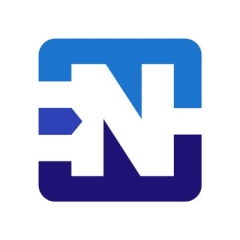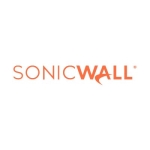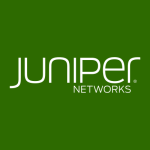What is our primary use case?
I was looking to improve my security posture. Bottom line, I just wanted really high-quality cybersecurity. When I look at appliances for cybersecurity, they can get up to almost seven figures for some businesses. So, this was a good compromise for me.
How has it helped my organization?
It optimizes performance right away. That is apparent to your everyday user. It makes the whole system work better and more efficiently. When there is an intrusion or an attack, it's very easy to eradicate the issue.
Before having the cybersecurity mechanisms I have now, even with VPNs from the App Store, I faced issues like hijacks that became multi-day issues where I had to perpetually get into some type of power struggle through remote based issues from another cyber threat. For example, in October 2022 or 2023, I sat down at my computer to move files from a cloud-based drive to an external hard drive. I opened the cloud drive, and all the files had been corrupted/damaged intentionally. Someone specifically corrupted the entire iCloud Drive. I called tech support, and the next day, there was an iOS update. Since I implemented the security appliance, I haven’t had this issue.
It means there's a better level of security in terms of what you can build into your system than is available through downloadable software.
pfSense helps prevent data loss:
I haven't had one issue of data loss since implementing it. Previously, I had to file reports with the FBI and CIA because the intrusions were so serious. These documents had criminal penalties associated with tampering. I haven't had one of those instances since using pfSense. Netgate and pfSense are good go-tos, even for the government. They often use Netgate as their server, and the military uses it too. The fact that the American military and foreign militaries use Netgate was a big selling point for me. It's good quality for what you pay.
It's a really great entry-level way to see how much, and it's scalable, too. When you talk about flexibility, the important thing to know is that the appliance and the software are scalable, too. I can start at the entry-level point, or I can build in and scale it up to enterprise-quality software, too.
pfSense Plus:
I use pfSense Plus. I use VoIP through the router.
It minimizes downtime in terms of having to debug and things of that nature. When there's an intrusion, it doesn't turn into a multi-day issue. It took me about ten minutes to eradicate one aggressive intrusion. Simple maneuvers resolved it quickly, avoiding days on the phone with tech support.
There was an instance where my firewall software—I don't know what happened exactly—but I did have to call tech support. Something happened where my firewall needed to be completely reconfigured.
So, are the entry-level ones invincible? No. But do they save you tons of effort in terms of preventing a lot of problems that could get worse? Yes. It's like a preventative measure to cancer before it spreads. It helps you catch things quicker before they spread and become something bigger.
The visibility that pfSense Plus provides helps us optimize performance. I feel more comfortable exchanging information and having personal conversations. It makes me more comfortable, more confident that what I'm doing is not... Some people I even work with are just not comfortable to talk openly. Some people are very email-retentive, like, "Do not click that hyperlink on this computer system. Don't do this or that." So it's understandable with some people.
It absolutely optimizes my entire computer system. In fact, I'm opening a brick-and-mortar storefront, and I'm going to use pfSense. Actually, I'm going to step it up to the TNSR software, but I use the Netgate routers because it optimizes performance. I feel comfortable to have a small to medium-sized office operating off this stackable network I'm creating. It's still a prototype, but I can have six screens, and that's really all I need. I can probably get six screens or five screens and a hardwired payment processing system at most if I need it.
Plus on Amazon EC2 VMs:
I haven't tried it recently. I did in the past, but I didn't have it configured correctly, so I can't truthfully comment on it. It was more complicated than I could set up. Like I have to pay for that. I can download the AWS EC2 application, launch the instance from a cellular device, and intermesh the cellular device into the router. That's also extremely valuable if I want to have a coworking situation where everyone's on my network a certain way, so when I do exchange information, it's highly confidential.
What is most valuable?
I get a mesh VPN network. I can have an enterprise-grade VPN for the business without spending too much. That's important for some people.
For me, I liked the pfBlocker, which is pfSense's firewall. I get a couple of different options with the firewall. I can use AWS as your provider to pass data through AWS's workstations to the router. There are a ton of important features.
I can build an instance, have it move through the router, and then be just cellular. There are so many great features.
I haven't even completely finished configuring it, and it's an ongoing process. There are always new, innovative, great things I learn. It's like a little gadget with a lot of great features. It's hard for me to decide what I like best and don't like.
It's pretty easy to customize. Once anyone gets past the technical jargon, it's highly flexible.
What needs improvement?
I would like to see a subscription-based tech support option as opposed to this flat yearly rate. I'd like to see more of a monthly tech support feature. I think that would be helpful for a different type of consumer. So, there could be more room for Netgate to expand. To me, it would have been nice to have a little bit more tech support at first.
But since I'm becoming so satisfied with this system I'm developing, I'm gonna step up anyway into the TNSR software. And when I do that, I get unlimited tech support.
So, it's kind of like this: if I don't want to pay for tech support, I teach myself and learn how the device works. And that's what I've basically done to this point. It's pretty plug-and-play but some of it is, like, if you don't configure it correctly, it just doesn't work.
I had a couple of instances where I was setting it up, and I set it up a certain way twice where I just didn't configure it in a way that it worked. I put so many security features in that I had locked myself out from even being able to log in.
So, it would be better to make tech support more accessible because they're really good at what they do, like behind the scenes. They know how to configure things through the terminal differently than I was.
System Reports:
Reports would be good, like system reports and functionality. Dumbing it down a bit more would help, too. We do have a Setup Wizard , but it is even less complicated in terms of setting it up because the user guide is 2,000 pages long.
So, the manual itself is, like, 2,000 pages for this device. If Netgate could make it a little bit less complicated for users. But, part of this appliance goes to IT departments anyway. So, they're more adept at setting it up than your average consumer. So that's generally who buys these things and sets them up. It's like your IT community usually gets involved with these because they understand that when you buy a computer, and you just start logging into the Internet, you've created a sort of dangerous atmosphere that not everybody understands by not making it safer. Everybody understands that when you log in if you don't even play with the settings on your computer. You're basically just setting yourself up to put your data out there like it's some type of free-for-all.
For how long have I used the solution?
I bought my first router from pfSense in early 2023. It was pfSense's entry-level appliance, around January last year. I was so impressed with it that I stepped up to the 8200 level, which is one step beneath a TNSR-grade server. pfSense has two models of appliances that are higher than the one I have before I get into more elaborate appliances with different companies.
I've stayed with this one for a year and a half now. I still have the original, which is nice. I bought it to use for a prototype concept that was built in. It worked, so I stepped it up.
What do I think about the stability of the solution?
I don't really know how to compare it to anything more elaborate. For my purposes, it's been a ten out of ten in terms of what I was expecting.
What do I think about the scalability of the solution?
Scalability was definitely what I was looking for, so I would give it a ten out of ten for my business needs. It's perfect right now.
If I can't get that level of security or sense of security, I can always stack the units more cost-effectively than going with something like Fortinet or Cisco.
I'd almost rather stack the appliances at this price point than get into a $7,000 to $ 10,000 appliance. I get a lot of security just by stacking them, too. So, I'd rate it as highly scalable. I'd give it a ten.
How are customer service and support?
The customer service and support are excellent, especially when they're supposed to charge you and they don't. When my entry-level router was fried and needed to be rebuilt, they did it from scratch, they made it seem easier than I would have ever been able to do.
I had to download software onto a USB drive, insert the USB drive into the router, and then rebuild it from scratch because, for whatever reason, it was completely trashed.
So, I get tech support, and I pay for it. Unless I get the enterprise software, which includes unlimited tech support. Initially, I called tech support for help, and they were always willing to assist but reminded me of the limitations because I hadn't bought the support packages. Their tech support is excellent, 24-hour, and multinational.
How would you rate customer service and support?
Which solution did I use previously and why did I switch?
I used some other DNS-quality firewalls, but they were cloud-based. Like cloud-based DNS providers, but not an appliance base. That's why I bought Netgate pfSense bottom-line product to test out a prototype concept. I was satisfied with it, so I set it up to be highly competitive against everything virtually, except maybe a really high-end computer lab that could cause some type of intrusion.
How was the initial setup?
Buying it, brainstorming, and waiting for it, as they build each one for you, which takes about two weeks.
I wanted it partially because it's not one of these fantastically elaborate routers that you would just want to be completely encapsulated and protected a certain way. This is the kind of router that I wanted to be able to bring around with me, too, because I created a mobile stackable cellular network with it.
I have it attached to an entry-level desktop that was not custom-made or custom-built but premanufactured. But it worked well. I wanted more processing speed than I have now. I just didn't have time to step up my processor. But, unfortunately, with the system I'm on now, you can't switch them. So it's fine. It's a grade lower than what I wanted, but it's fine.
Creating a Portable Network:
But what is good about this is that it does work for what I was trying to do, making it mobile, stackable, and cellular. I can put a laptop. I can get a laptop as long as it has, like, a hard drive, and I can download the SI Labs, the Silicon Labs software onto the laptop. Then, I can connect the router to the cellular, like a cellular modem, which is what I have. I have one of these Netgear Nighthawk mobile cellular so it's like a cellular modem. So, I put in a SIM card with unlimited data. I connect the the Netgate router to the cellular modem, and now I connect the computer to the router. And if it's a laptop, I can connect all of this to, like, a portable network, and now you have a portable network. So I have, like, a portable point server if I want for significantly less.
Security Considerations:
You're not gonna get that level of cybersecurity on a mobile device unless you configure it that way. I mean, you could. You'd have to be getting into, like, your your, like those kinds of vans that you see on movies where they have, like, like, those vans where they're doing, like surveillance and intelligence work. Netgate pfSense is pretty excellent quality if you wanna sit at a cafe and feel comfortable doing business and things, not being on their Wi-Fi.
Future Deployment Plans:
Right now, I'm getting ready to put enterprise-grade software on my devices exclusively; that's what I'm going to do until I get the business off the ground.
The real deployment will be once I'm transacting service-related business against the appliance. I'm going to open a healthcare practice in Europe. I have a business in the United States that I structured to be a multinational business. I'm going to take this network and put it into a 30 to 60-square-meter office space.
I'll probably have about ten employees, but none of it will be for their personal devices. The purpose of the network will be to offer a secure Wi-Fi network to my patrons and to set up payment processing and other business-related tasks. It's going to be a small scale, with maybe six computer screens tops.
What was our ROI?
I have seen ROI, it saved me time by preventing frustration and loss of content, data, and time. The confidence it provides also pays for itself.
I used to deal with intrusions weekly, spending anywhere from an hour to several hours each time. Now, it's less tedious and frustrating to optimize and eradicate threats and intrusions.
It’s like a high-maintenance car that needs fine-tuning but ultimately runs smoothly.
What's my experience with pricing, setup cost, and licensing?
It's highly cost-effective for both the average consumer and business users. It's highly competitive, which is why so many people use it. It's extremely down-to-earth compared to Fortinet or Cisco, Netgate doesn't reach that financial tier but is extremely competitive and extremely cost-efficient. They offer superb levels of service for what we pay.
Currently, my setup is for a small to medium office. My first one was more for a home-based office—you could have a printer, computer, some gaming systems, TV. I would do a personal office with my first one, and this next one for a small to medium-sized office business for myself and others. I feel comfortable with that.
And they're also stackable, so I can scale it that way. It's highly scalable. It's really something worth playing with. And they offer a return policy, which is fair too, for the security appliance too.
The total cost of ownership of Netgate pfSense:
It's basically a one-off deal, which is good. You might consider building in installment payment options on the Netgate website, possibly with services like Afterpay or Klarna. This could appeal to noncommittal consumers. Personally, I would just pay cash upfront for my clients.
What other advice do I have?
I'm clearly recommending it to others. It's scalable, cost-effective, practical, and down-to-earth. It's enterprise quality. It has a reputation that even the military endorses openly. When you buy something described as indestructible, and even the military uses it for their security, it says a lot. The government also uses it, testing prototypes and various things of that nature with it.
If someone looks at the website, they'll see a large naval ship where cadets are operating off that prototype, testing if they could use the step-up with the pfSense software. They were using a higher-grade appliance with pfSense software to see if it was feasible. This shows that it's practical because the price point is unbeatable for that level of quality.
The solution for me is a ten. It's still a prototype, but I'm confident I can meet the needs of a medium-sized office with ten to twenty employees. However, scaling it up for something like an Airbnb with a high level of traffic is uncertain. It's not like a navy ship with a hundred military personnel. For my needs, it's perfect.
It's a solution for my personal needs, and I feel confident about it. Looking into the future, scalability-wise, I think it meets my needs. But when you get to a different level of e-commerce, I'd be interested to hear their perspectives too.
Disclosure: PeerSpot contacted the reviewer to collect the review and to validate authenticity. The reviewer was referred by the vendor, but the review is not subject to editing or approval by the vendor.


















